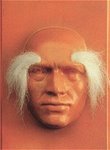
Most people who have played poker for a reasonable amount of time know that successful players have a devastating combination of aggression and confidence.
However, people often forget that confidence is not a constant and it will be susceptible to fairly large swings over the course of a poker career or even an individual session. When players have their confidence pounded, their aggression can become hugely misplaced and that is when you can exploit their vulnerability.
There are as many different ways to dent confidence as there are playing styles but this piece is going to concentrate on an aspect a lot of players don’t gauge very well: showing cards when you don’t have to.
Conventional card-playing wisdom states that in most cases you should never show. Certainly, if you stick to that strategy, you will do better than a player who occasionally shows his cards but who times the move badly.
Here’s an example.
Player A is heads up against a tight opponent and the former has flopped top two.
On the flop, A bets three-quarters of the pot and he’s called.
The turn card is a blank so A bets three-quarters and again he’s called.
The river card lands and leaves no possible draws so A bets half and is immediately re-raised, all-in.
It is time for A to consider his options. There was no raise pre-flop, a tight player has called all the way and has now gone all in.
Player A can only beat a bluff, a weaker two pair or the possibility of top pair, top kicker; he can also tie.
He discounts the bluff and TP, TK because his opponent is tight. As there is no other obvious two pair (cards that a player could expect a tight player to play, like QJ, JT etc), he puts his opponent on a set.
He folds but announces to the table, ‘I put down my two pair because you have a set.’
The tight player collects the money and shows his pocket pair, matching another on the flop.
The tight player collects the money and shows his pocket pair, matching another on the flop.
He’s just made a huge mistake.
He has reset the hourglass of Player A’s confidence at the exact moment when it should be dwindling away. If it were in a bricks ‘n mortar cash game, where the value of table presence is at its premium, Player A would feel like a god basking in the respect of his fellow opponents. His decision to fold two pair may seem moronic to others at the table. It now looks like genius.
Consider the possibilities had the tight player quietly folded his hand.
Player A would have to watch the other guy stack his cash. A small degree of uncertainty about the decision to fold could eat away at his mind. If he is subsequently subject to a bad beat from a drunk, his cage could become rattled to the extent that he becomes a prisoner of tilt.
Moreover, by announcing that he is mucking two pair, he is revealing the flaw of ego which can only be properly exploited if the tight player doesn’t reveal his hand.
All of this has been lost, simply because the tight player felt like being nice.
Next week, we will look at occasions when it is worth showing your cards. It won’t be for the squeamish.
Here’s a clue: what is the opposite of being nice?


No comments:
Post a Comment